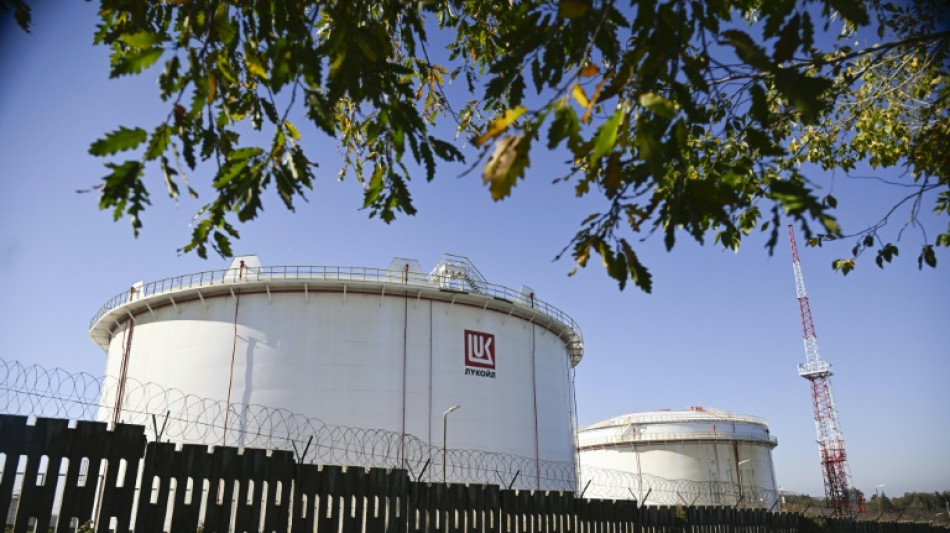

Bulgaria names manager to take over Russia's Lukoil refinery after US sanctions
Bulgaria on Friday nominated a senior government official to take control of a major Lukoil refinery in the east of the country following US sanctions against the Russian oil giant.
The United States last month hit Russia's two biggest oil producers -- Rosneft and Lukoil -- with sanctions over its war in Ukraine.
Lukoil has owned the Neftochim plant -- the largest oil refinery in the Balkans -- in the Black Sea city of Burgas since 1999.
A week ago, a parliamentary vote authorised the government to seize Lukoil's assets in Bulgaria, where it enjoys a quasi-monopoly with a network of oil depots, petrol stations, as well as firms supplying ships and aircraft.
The cabinet appointed National Revenue Agency director Rumen Spetsov as Special Administrator of the assets, economy minister Petar Dilov said.
"Rumen Spetsov, whom I have nominated, meets all legal requirements," Dilov told a press conference after a cabinet meeting.
He said that Spetsov, a former bodybuilding champion would "ensure effective and lawful control over the body operating the critical infrastructure".
The US sanctions, which will come into force on November 21, have raised concerns among Bulgarian leaders that they could lead to the shutdown of the crucial refinery.
The measures taken ensure that "in the shortest possible time", OFAC (the US Treasury's Office of Foreign Assets Control) could issue a license that allows the refinery to operate after November 21, Energy Minister Zhecho Stankov said on Friday.
The emergency law on the Lukoil assets allows the special administrator -- whose actions cannot be challenged in court – to sell shares to a new owner, pending government approval.
This has drawn criticism from Bulgarian President Rumen Radev -- whose veto on the legislation was overruled by parliament -- and opposition lawmakers.
Radev said the parliamentary vote undermined "the rule of law" and posed "an unreasonably high risk to public finances" as Lukoil could sue Bulgaria and claim significant compensation.
The opposition, comprising pro-Russian and liberal factions, has accused the government of preparing to transfer the refinery to a company close to the ruling coalition, a claim the coalition has firmly denied.
Moscow's ambassador to Sofia, Eleonora Mitrofanova, told Russian news agency TASS on Monday that Bulgaria was "setting a dangerous precedent", adding it "looks like a law on property expropriation".
Last month, Bulgarian lawmakers adopted temporary restrictions on exports of petroleum products, including to other European Union members, to ensure sufficient supplies following the US sanctions on Russian energy.
R.Gutierrez--RTC


